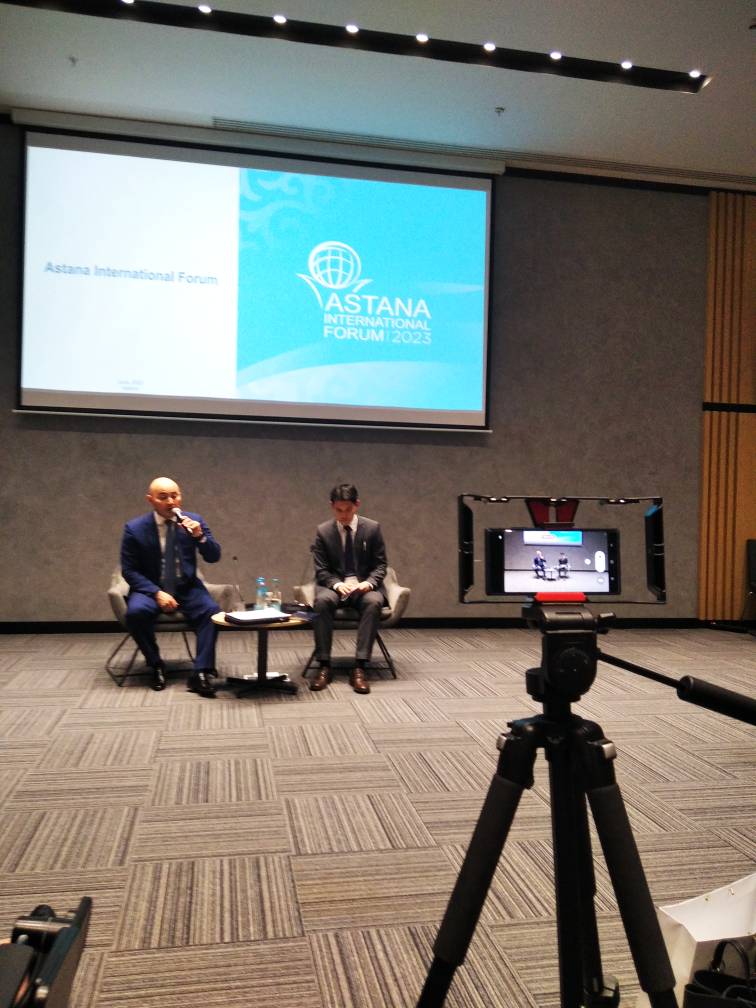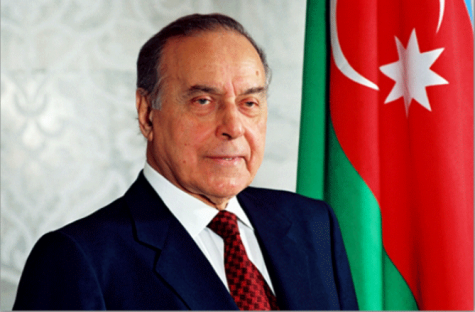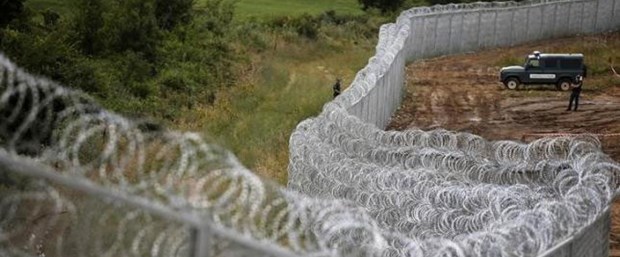
On 18 January, Armenian Prime Minister Nikol Pashinyan stated that Armenia needs a new constitution. He highlighted that what he meant was not just amendments, but an entirely new constitution.
In its basic definition, a constitution is the set of basic principles and laws of a state. Put differently, a constitution identifies the fundamental laws by which a state is governed. Yet, this is only a narrow legalistic understanding. A constitution, indeed, is a basic text that documents the moral values, ideals, and worldview that a state stands on and for. This is the actual reason why Pashinyan's statement deserves attention. So indeed, Pashinyan made it quite clear that his vision goes far beyond a legalistic readjustment. What Pashinyan hints at is the revision of the foundational worldview of the Republic of Armenia enshrined in the constitution.
The points that Pashinyan emphasized in his statement to make his case for a new constitution are as follows: The world is changing “at a very high speed and in unpredictable directions.” The region, i.e., South Caucasus, is also changing. Within this context, Armenia will “change, as well.” Hence, what is needed is to manage this change “in accordance with the state interests of the Republic of Armenia.” A new constitution - not just amendments - is a necessity, in this regard.
At the heart of Pashinyan's argument for a new constitution lies the notion of “state interests.” Pashinyan in his statement identified the (external) security as the ultimate interest of the Armenian state. He underlined the notion of legitimacy as the key to ensuring Armenia’s security. Accordingly, the main objective of the new constitution, Pashinyan sustained, is to strengthen the legitimacy of Armenia in the international domain in its internationally recognized territory as a legal, democratic state.
In sum, Pashinyan argued that in an era of unpredictable changes, Armenia needs to uphold its security by adapting itself to new circumstances, which, primarily, necessitates the strengthening of its legitimacy as a state. To do that, Armenia needs a new constitution.
The Pith of the Matter
Most of the Armenia observers, as well as Armenian opposition politicians, believe that Pashinyan aims to undo the reference to the August 1990 Armenian Declaration of Independence that exists in the Preamble of the current Constitution of the Republic of Armenia that states “the Armenian People, accepting as a basis the fundamental principles of Armenian statehood and pan-national aspirations enshrined in the Declaration on the Independence of Armenia...adopts the Constitution of the Republic of Armenia.” In fact, Pashinyan's aforementioned statement, as well as some others including his congratulatory message on the occasion of the 33rd anniversary of the adoption of the Declaration of Independence of Armenia provide reasonable ground for this opinion.
What is it about the Armenian Declaration of Independence?
But, what is it about the Armenian Declaration of Independence? Why does it constitute a problem?
The preamble of the Declaration states “…Based on the December 1, 1989, joint decision of the Armenian SSR Supreme Council and the Artsakh National Council on the 'Reunification of the Armenian SSR and the Mountainous Region of Karabakh;’” As such, the Declaration explicitly stipulates the annexation of a part of the internationally recognized territory of Azerbaijan.
Though less explicitly and indirectly, the Declaration also includes hostile and irredentist claims over Türkiye. The preamble of the Declaration writes “Aware of its historic responsibility for the destiny of the Armenian people engaged in the realization of the aspirations of all Armenians and the restoration of historical justice;” (emphasis added). The 11th article of the Declaration states “The Republic of Armenia stands in support of the task of achieving international recognition of the 1915 Genocide in Ottoman Turkey and Western Armenia” (emphasis added). In the Armenian political lexicon, Western Armenia connotes Eastern Türkiye and one of the two elements of “historical justice” is the annexation of Eastern Türkiye that constitutes almost a quarter of the territory of Türkiye, to Armenia.
As such, the Declaration is a document that embodies an irredentist ideology as one of the pillars of the Republic of Armenia.
The Right Path of Pashinyan
If the aim of Pashinyan is really to cancel out references to the Declaration in the new constitution, he follows an accurate logic. This is because a state that lays claims on the internationally recognized territory of another state cannot legitimately stand against claims over its own territory. In other words, unlawful territorial claims diminish the legitimacy of the claim of a state on its territory. A state that does not respect international law cannot expect others to uphold that law vis-à-vis itself.
Until the Autumn of 2020, this was not a big problem for the Armenian elite, including Pashinyan himself, who lived in a self-inflicted fantasy of the invincibility of the Armenian army. The Armenian elite erroneously believed that in time the de facto situation in Karabakh would attain a de jure status. What was needed was only time.
However, the 2020 Karabakh war changed everything. Azerbaijan liberated most of its territory from the Armenian occupation, destroyed the Armenian army, and crippled its capacity to stand a chance in case of another war. As such the 2020 war shattered the delusions of the Armenian elite. Pashinyan’s emphasis on global and regional changes, legitimacy, security, and the need for a new constitution should be viewed from this perspective.
Here we see a realist and politically smart Pashinyan, no matter how unprincipled he is in essence, a fact that also explains his incoherent political discourse and practice, hence his ultimate unreliability. Pashinyan understands that not only the security but also the prosperity of Armenia are contingent upon the normalization of relations with its neighbors. Unfortunately, it took a major defeat for Armenia, for Pashinyan and his like-minded colleagues to come to this understanding.
A Chance for Normalization in the South Caucasus
Türkiye has long been concerned about Armenian irredentism, though, from a realist point of view, any irredentist adventure of Armenia would mean its absolute destruction. Here the point is that no state can be indifferent or tolerant to even implicit irredentist tendencies of its neighbors. Armenian irredentism, no matter how legally ungrounded and practically unrealistic it is, has been a major impediment to the normalization of Turkish-Armenian relations. As to Azerbaijan, it has already been seen in 2020 that Baku could not accept the territorial claims of Armenia. Therefore, Pashinyan’s supposed aim to remove any reference to the Armenian Declaration of Independence in the new constitution is a right step for bilateral and regional normalization in the South Caucasus.
Apart from these, there is also a technical issue concerning post-2020 Azerbaijan-Armenia normalization and peace processes that shall not be overlooked. Baku and Yerevan have been negotiating normalization and peace since the 2020 Karabakh war. One of the topics in this framework is the mutual recognition of each other's territorial integrity. In the last year, Baku and Yerevan agreed on this topic “with the understanding that the territory of the Republic of Armenia is 29,800 square kilometers, and the territory of Azerbaijan is 86,600 square kilometers.”
However, the tricky point about that is the ratification of the would-be peace treaty by the Armenian side. That is, if the Armenian constitution refers to the Armenian Declaration of Independence that foresees the annexation of Karabakh, the Armenian Constitutional Court may very well reject the ratification of the Armenia-Azerbaijan peace treaty that stipulates mutual recognition of each other's territories. Given that the Armenian Constitutional Court rejected the 2009 Armenia-Türkiye Protocols with reference to the aforementioned preamble of the Armenian constitution and the 11th paragraph of the Armenian Declaration of Independence, this scenario is not unthinkable.
Therefore, Pashinyan's objective to adopt an entirely new constitution that would not refer to the Declaration of Independence would be a step towards normalization in the South Caucasus, which would strengthen the legitimacy and security of Armenia. Such a prospect would also strengthen the independence and sovereignty of Armenia, as well. However, there is more to that. If Pashinyan’s quest really hints at the will to correct the flawed foundational worldview of Armenia that rests on the continuation of historical enmities and irredentist ideas, it will be a major breakthrough in Armenian history, as well, in terms of the ‘normalization’ of the Armenian nation and the state, a vision that the first President of Armenia Levon Ter Petrosyan advocated in early 1990s, yet only to be dismissed by a civil coup d’état initiated by what came to be identified as the Karabakh clan.
* Photo: https://www.primeminister.am
© 2009-2025 Center for Eurasian Studies (AVİM) All Rights Reserved
No comments yet.
-
 "RUSSIA USING the ‘ARMENIAN CARD’" - COMMENTARY PUBLISHED IN HURRIYET DAILY NEWS
"RUSSIA USING the ‘ARMENIAN CARD’" - COMMENTARY PUBLISHED IN HURRIYET DAILY NEWS
Turgut Kerem TUNCEL 01.12.2015 -
 THE FORCED EXILES OF THE CRIMEAN TATARS AND THE CIRCASSIANS
THE FORCED EXILES OF THE CRIMEAN TATARS AND THE CIRCASSIANS
Turgut Kerem TUNCEL 24.05.2017 -
 KAZAKHSTAN'S ECONOMIC AND FOREIGN POLICIES: NOTES FROM ASTANA - I
KAZAKHSTAN'S ECONOMIC AND FOREIGN POLICIES: NOTES FROM ASTANA - I
Turgut Kerem TUNCEL 15.06.2023 -
 A NEW FOREIGN INTELLIGENCE AGENCY IN ARMENIA
A NEW FOREIGN INTELLIGENCE AGENCY IN ARMENIA
Turgut Kerem TUNCEL 02.01.2023 -
 YET ANOTHER ARMENIA-DIASPORA SUMMIT: CONSTANT DEJA VU
YET ANOTHER ARMENIA-DIASPORA SUMMIT: CONSTANT DEJA VU
Turgut Kerem TUNCEL 07.11.2022
-
 EU TO START NEW NEGOTIATIONS WITH ARMENIA ON A NEW AGREEMENT
EU TO START NEW NEGOTIATIONS WITH ARMENIA ON A NEW AGREEMENT
Ali Murat TAŞKENT 18.10.2015 -
 THE OTTOMAN LIEUTENANT IS NOW ON DIGITAL SATELLITE TELEVISIONS
THE OTTOMAN LIEUTENANT IS NOW ON DIGITAL SATELLITE TELEVISIONS
Hazel ÇAĞAN ELBİR 02.05.2018 -
 A GREEK PONTUS TV DRAMA MAKES MOCKERY OF HISTORICAL FACTS
A GREEK PONTUS TV DRAMA MAKES MOCKERY OF HISTORICAL FACTS
Teoman Ertuğrul TULUN 31.08.2020 -
 12TH ANNIVERSARY OF THE PASSING OF HEYDAR ALIYEV
12TH ANNIVERSARY OF THE PASSING OF HEYDAR ALIYEV
AVİM 14.12.2015 -
 THE EU CONTRADICTS ITSELF BY CRITICISING TRUMP FOR BUILDING THE WALL ALONG THE US-MEXICO BORDER
THE EU CONTRADICTS ITSELF BY CRITICISING TRUMP FOR BUILDING THE WALL ALONG THE US-MEXICO BORDER
Hazel ÇAĞAN ELBİR 21.02.2017
-
25.01.2016
THE ARMENIAN QUESTION - BASIC KNOWLEDGE AND DOCUMENTATION -
12.06.2024
THE TRUTH WILL OUT -
27.03.2023
RADİKAL ERMENİ UNSURLARCA GERÇEKLEŞTİRİLEN MEZALİMLER VE VANDALİZM -
17.03.2023
PATRIOTISM PERVERTED -
23.02.2023
MEN ARE LIKE THAT -
03.02.2023
BAKÜ-TİFLİS-CEYHAN BORU HATTININ YAŞANAN TARİHİ -
16.12.2022
INTERNATIONAL SCHOLARS ON THE EVENTS OF 1915 -
07.12.2022
FAKE PHOTOS AND THE ARMENIAN PROPAGANDA -
07.12.2022
ERMENİ PROPAGANDASI VE SAHTE RESİMLER -
01.01.2022
A Letter From Japan - Strategically Mum: The Silence of the Armenians -
01.01.2022
Japonya'dan Bir Mektup - Stratejik Suskunluk: Ermenilerin Sessizliği -
03.06.2020
Anastas Mikoyan: Confessions of an Armenian Bolshevik -
08.04.2020
Sovyet Sonrası Ukrayna’da Devlet, Toplum ve Siyaset - Değişen Dinamikler, Dönüşen Kimlikler -
12.06.2018
Ermeni Sorunuyla İlgili İngiliz Belgeleri (1912-1923) - British Documents on Armenian Question (1912-1923) -
02.12.2016
Turkish-Russian Academics: A Historical Study on the Caucasus -
01.07.2016
Gürcistan'daki Müslüman Topluluklar: Azınlık Hakları, Kimlik, Siyaset -
10.03.2016
Armenian Diaspora: Diaspora, State and the Imagination of the Republic of Armenia -
24.01.2016
ERMENİ SORUNU - TEMEL BİLGİ VE BELGELER (2. BASKI)
-
AVİM Conference Hall 24.01.2023
CONFERENCE TITLED “HUNGARY’S PERSPECTIVES ON THE TURKIC WORLD"









